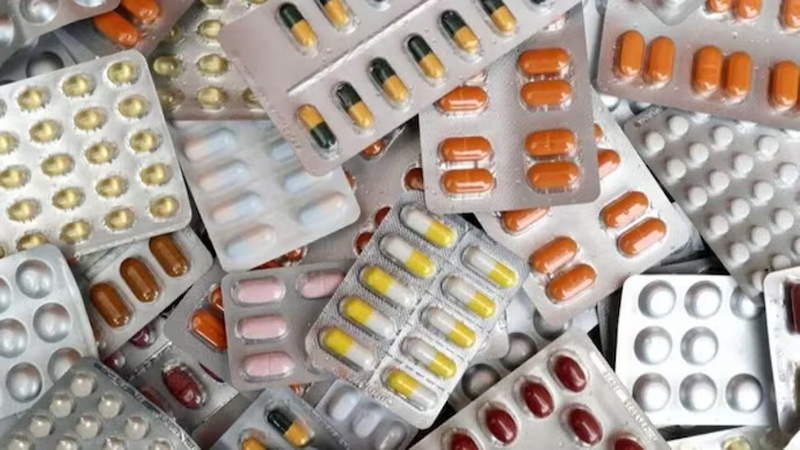NEW DELHI, Mar 12:
The Centre has proposed that the country’s apex drug regulatory body, CDSCO, be empowered to regulate the manufacture of drugs or cosmetics, instead of the state drug regulators as is the practice currently, according to the revised draft of a bill that has been sent for inter-ministerial consultations.
However, the sale of drugs, cosmetics and medical devices will continue to be regulated by the respective state governments, according to the revised draft of the New Drugs, Medical Devices and Cosmetics Bill, 2023, which seeks to replace the existing Drugs and Cosmetics Act of 1940.
Further, the provision of taking permission to operate an e-pharmacy has been removed and replaced with the words — central government may regulate, restrict or prohibit the sell, stocking, exhibiting or offer for sale or distribution of any drug by online mode by notification — according to the draft bill, a copy of which has been accessed by PTI.
The draft New Drugs, Medical Devices and Cosmetics Bill was placed in the public domain in July last year, seeking feedback from the stakeholders.
The Union health ministry and the Central Drugs Standard Control Organisation (CDSCO) received several comments from the stakeholders on the draft bill, which was revised accordingly by the ministry and sent for inter-ministerial consultations.
During the ongoing consultations on the draft bill, the think tank of the government, NITI Aayog, endorsed the newly-introduced provision of giving the powers to the CDSCO to issue manufacturing licences for drugs and cosmetics instead of the state regulators, saying it will ensure uniform and effective implementation of the law and it implies a huge change towards resting all manufacturing duties with a central licensing authority.
Section 22(c) of the draft bill says: “Manufacture for sale or distribution, any drug or cosmetic, except under and in accordance with a licence issued by the central licensing authority in such form and manner as may be prescribed….”
Presently, all manufacturing activities relating to drugs and cosmetics are regulated by the respective state governments through their drug control organisations. Once the proposed bill is passed by Parliament, all the powers of the state governments relating to regulation of manufacture of drugs and cosmetics will go to the Centre through the CDSCO, an official source explained.
At present, almost every district in the country has state drug control offices to administer provisions relating to the manufacture and sale of drugs and cosmetics.
For effective implementation of the newly-introduced provision and regulation of manufacture of drugs and cosmetics by the CDSCO, it has to be strengthened accordingly in terms of infrastructure and manpower, the source said.
Besides, regulations for the conduct of clinical trials for new drugs and medical devices have been brought under the draft bill.
Currently, the conduct of clinical trials for new drugs and medical devices and the provisions for compensation for injury or death on account of participation in clinical trials, medical management of the trial participants, regulation of the ethics committee etc. Are governed by the New Drugs and Clinical Trials Rules, 2019. Also, medical devices are treated as drugs and there is no separate definition for those.
The draft bill has a separate chapter on AYUSH drugs, which proposes to regulate Sowa Rigpa and Homeopathy for the first time. The existing act regulates only Ayurveda, Unani and Siddha drugs and cosmetics.
The draft bill has introduced various definitions or provisions, such as bioequivalence study, bioavailability study, clinical trial, clinical investigation, controlling authority, manufacturer, medical device, new drugs, over-the-counter (OTC) drugs, adulterated cosmetics etc., for more clarity and smooth functioning and implementation, an official said.
The penalties for offences related to import of drugs and cosmetics have been enhanced appropriately in the draft bill, another official said.
The proposed bill provides for regulation of clinical trials of new drugs, investigational new drugs, the ethics committee etc.
“However, in the interest of public health or extreme urgency of drugs, the central government is empowered to make provisions for the central licensing authority to waive the requirement of conducting clinical trial for manufacture or import of new drugs or investigational new drugs in the country,” the draft bill read.
“Where any participant is injured on account of his participation in the clinical investigation, the person, sponsor, clinical research organisation, any other organisation or investigator permitted under sub-section (1) of section 116 shall provide medical management to that participant,” it stated.
Currently, all these provisions are there in the rules but now, these have been proposed in the bill, an official said.
In the existing rules, there is no provision to impose penalties, such as imprisonment, on the erring firms or people for a failure to provide compensation to the participants in the clinical trials for both drugs and medical devices. (PTI)
Trending Now
E-Paper


